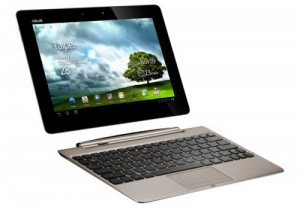CES 2012: Overcrowding the Android tablet market


CES 2012: See CNET’s news and product coverage
Android smartphones have surpassed Apple's iPhone offerings. But pitted against the Apple iPad and iPad2, the Android tablets have struggled to compete. The Android 3.x operating system, Honeycomb, proved to be unstable and buggy at first, which hurt its chances of success.
Personally, I feel that the new Android 4.0 OS, Ice Cream Sandwich, will prove to be a major improvement, much in the same way that Windows 7 was a vast improvement over Windows Vista without substantially changing the overall operating system experience.
This year we are seeing tablets using the new quad-core Tegra3 chipset, such as the Asus Transformer Prime and the Acer Iconia Tab A700. The Acer and the new model of Asus Transformer Prime have a larger screen resolution for playing 1080p video natively.
The leading factors in the low adoption rate of Android tablets seems to be hardware cost, and shortage of tablet-optimized apps. Even subsidized tablets from the mobile carriers tend to be fairly expensive. The low-cost options that are well-built and supported are the Amazon and Barnes & Noble 7" tablet offerings. For some functions, however, they are too small for the full tablet experience.
There are a number of very handy applications suited for larger tablets, such as office suites, and there are tons of games. But there are also many Android applications designed solely for mobile phones, and they don't scale effectively.
Android 4.0 has the ability to scale the screen so that apps meant for smaller screens can be run on a higher resolution screen without losing functionality. Of course, it's quite obvious when an application is being stretched to fit the larger screen; it typically looks blurry.
It seems odd that while the new Tegra3 chipset for Android tablets is available, many of the new offerings from manufacturers are using either Tegra2 chipsets, or faster dual-core chipsets. There's nothing wrong with them, but the performance of the quad-core CPU allows for proper playback of high-quality video that most Tegra2 devices are incapable of achieving.
The biggest concern for all of these devices is market saturation. If Android 4.0 ICS is the improvement that finally turns things around for Android tablet acceptance, then an expanding market might provide room for at least some of these devices to compete.
If not, then the new devices will resume the continuing struggle that they've had up until now; they will remain sidelined as a niche market for people that like to tinker with technology. Apple has perfected the marketing art of getting people to need and buy devices that they didn't realize they needed until Apple told them they did. Android tablets do not inspire this same level of desire.
In addition to this, Google's Eric Schmidt has hinted at a Google-branded device to be released within 6 months. Much of what has been reported on this statement is pure speculation, which is likely the effect that Google is shooting for.
Microsoft, for instance, has a history of announcing products sometimes years in advance of having an actual product to deliver. This vaporware method was deliberate, in order to scare off potential competition from vying to compete in that market sector. Whether or not this tactic will work for Google remains to be seen.
Regardless, the Android tablet market is over saturated right now. It looks like only a handful of major players, Samsung, Asus, Motorola, Acer and Toshiba are the only ones currently having any measure of success. In order for them to truly succeed, there needs to be a major upward shift in Android tablet adoption. Is 2012 going to be the year when things finally turn around? I'm hoping it is, but I won't be holding my breath.